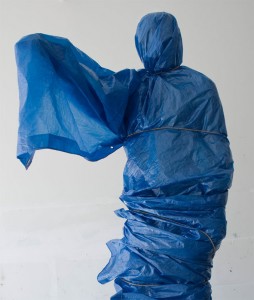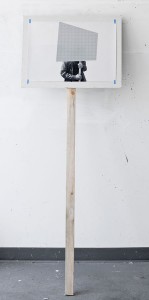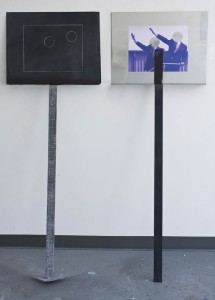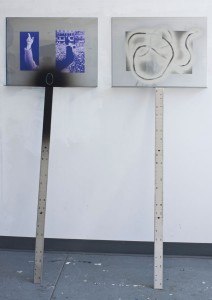For an Archive of the Future Anterior
BY Thom Donovan


The past couple months I have been starting a project with a collaborator, the visual artist/editor of Shifter magazine Sreshta Rit Premnath, to establish an archive of the future anterior. As we say in the first paragraph of our project proposal, addressing the purpose of the project:
The tense of the future anterior (French: Future auxiliary verb + past participle) is one of potentiality. Within any given present, it images "what will have been" before an event actually comes to pass. To return to the moments of bifurcation is an objective of the archive of the future anterior. An archive which wishes to serve less as a time-capsule than a provisional index of loss or misplaced futures; where future has not yet become past and multiple futures remain compossible within a single present.
I could not imagine a more auspicious person to collaborate on this project with than Premnath, who is currently working on an installation which deals with the ways that monuments project symbolic values and retroactive cultural narratives. Visiting Premnath's studio a few weeks ago in Sunset Park, Bklyn, upon entering the studio I immediately encountered a statue in the center of the room, covered by packaging materials bound in rope and standing on a wooden crate. Around the center of the room were propped mirrored sign boards upon which images of rope and newspaper photographs were silkscreened. In other incarnations of Premnath's "monument," the staue is surrounded by blank sign-boards, as though a particular political content were erased (vanished? forgotten?) or more likely yet-to-be-inscribed. In Premnath's work, one always moves among multiple durations, historical contexts, and memory circuits, all of which potentialize the present through aesthetic-critical encounter.


In the next few years (if not indefinitely), Premnath and I wish to gather video footage of live interviews with artists, writers, thinkers, scientists, teachers, and other culture workers in order to an establish an archive which will serve as a time-capsule that we do not have to wait to open; that is, which we can continue to revisit in order to imagine the futures we might want. Below are some questions which we have asked contributors to consider in preparation for their interviews:
1. Is there a particular historical moment or configuration that, though it is past, still holds conditions of possibility for the future? Such moments can include events of revolutionary participation and/or insurrection, as well as movements for socio-political progress. They might also indicate historical conditions which never ‘amounted’ to anything; which is to say, never culminated in a visible and/or legible result.
2. Some notions of utopia are placed in the irretrievable or non-existent past (myth) while others are placed in the distant future (sci fi fantasy). Either way utopia, as an idea, is set in dialectical opposition to notions of 'reality' and 'present'. It may be argued that the tension between that which is present and that which is possible creates a vector of becoming. Do you feel that such ideas of utopia are still useful in producing social and political movement?
3. If advertising and most mass media function by producing and then mobilizing our desires, how do we separate our notions of past and future from those given to us by hegemonic forces (forces of commodity, sovereignty, corporate interest)? Is there a relative autonomy that we are able to exercise within the tense of the future anterior to confront and examine these forces and produce new sensibilities that are outside or in opposition to them? What might it mean to confront the memory traces of past cultural products through their unrecognized and/or abandoned potential?
4. Do you feel that there are certain birth-traits—qualities based upon where and when you were born or the circumstances in which you grew up—that predispose you to certain futures? Do you feel that you have exerted a certain amount of resistance to produce a future that you were not predisposed to?
5. Is there a particular idea that you had begun to research or pursue that never developed into anything (or that was arrested in its development) that still haunts your practice? An idea that you remain unsure about, but persists in your mind and that you hope to one day reengage/follow-through with?
6. Are there projects that persist in your mind but are never realized because they seem embarrassing, awkward, or simply unrepresentable beyond their personal content?
Thom Donovan lives in New York City where he edits Wild Horses of Fire weblog (whof.blogspot.com) and...
Read Full Biography

